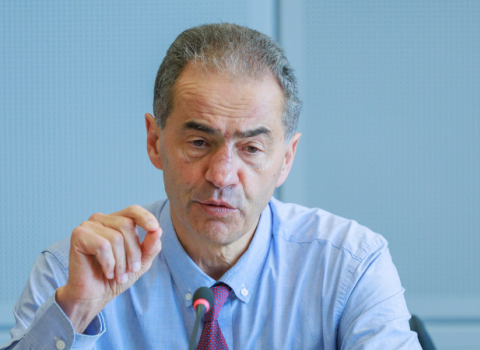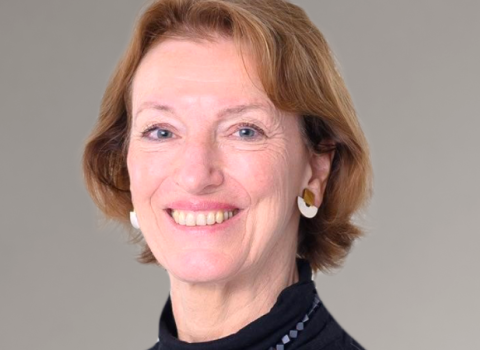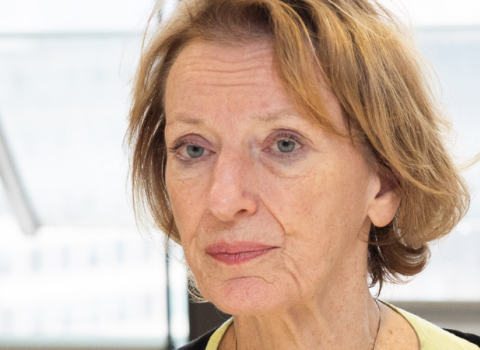- 4-OCEANS will assess the importance of marine life for human societies during the last two millennia, and consider how selected major socio-economic, cultural, and environmental forces variously constrained and enabled marine exploitation
Two researchers from Trinity College Dublin are among a four-strong team of principal investigators spearheading a new €10.4 million project funded by the European Research Council (ERC) to assess the importance of marine life to human societies during the last two millennia, with a focus on understanding the consequences of marine resource exploitation for societal development [Thursday 5th November 2020].
The project, 4-OCEANS, has been funded via an ERC Synergy Grant (the first to be won by Ireland-based researchers). These highly prestigious grants support transformative work that addresses major research challenges that would fall beyond the scope of any single ERC award and can only be tackled by collaborative approaches spanning multiple disciplines.
This project will bring together leaders with expertise in marine environmental history, climate history, natural history, geography, historical ecology and zooarchaeology, nurturing a unique collaboration and integration of researchers from the humanities, natural sciences and social sciences.
The 4-OCEANS team is comprised of principal investigators, Poul Holm, Professor of Environmental History, and Francis Ludlow, Assistant Professor of Medieval Environmental History, from Trinity; James H Barrett, Reader in Medieval Archaeology and Deputy Director of the McDonald Institute for Archaeological Research at the University of Cambridge; and Cristina Brito, Assistant Professor, Faculty of Social and Human Sciences and the Deputy Director of CHAM - Centre for the Humanities, at NOVA University Lisbon.
Professor Holm said:
“We are excited to have secured this grant to embark on a fascinating and important project that will provide us with an unparalleled understanding of humanity’s recent interactions with the oceans, which will likely inform future symbioses with the many, varied aspects of marine ecosystems that enrich and support us.
“Specifically, combining history and archaeology with marine science and socioeconomics, the 4-OCEANS team will examine when and where marine exploitation was of significance to human society; how selected major socio-economic, cultural, and environmental forces variously constrained and enabled marine exploitation; and what were the consequences of marine resource exploitation for societal development.”
Professor Ludlow added:
“There are many avenues of research that we look forward to pursuing, but the most important goal of the project is to conduct the first ever globalised evaluation of the role of marine resources for societal development across two millennia, and thereby advance our understanding of the role of ocean life in human history.
“Long-term data and an understanding of changes in ecosystems and human behaviour over many centuries is critical to informing the continued development of the UN’s Sustainable Development Goals and the Decade for the Oceans, from which the historical dimension is still missing. The 4-OCEANS project will ultimately introduce much-needed chronological depth to how we view urgent societal and environmental issues across the globe, through the understanding of our past.”
Dr Barrett said:
“By combining archaeology, history and environmental science we aim to map, date and measure past harvests of marine life. Untangling human and natural drivers, 4-OCEANS will explain how diverse historical trajectories created global networks, fuelling major centres with the products of distant ecosystems – with lasting consequences for both societies and the sea.”
Professor Brito added:
“The project 4-OCEANS will deepen our understanding of the oceans' past and the relationships that different human societies established with this environment and their resources, helping to bridge the gap in knowledge about – and the emotional connection of people with – the oceans. By addressing the human history of marine life, our interdisciplinary research will emphasise the importance and value of the humanities for the study of the ocean and address current environmental and societal issues.”
The 4-OCEANS project is the first ever awarded to Ireland-based researchers under the Synergy grant scheme. It also represents the largest single ERC investment in a Humanities and Social Sciences project in Ireland, with Professors Holm and Ludlow will oversee €5.4 million of the €10.4 million research funding total allocated to 4-OCEANS.
Over the course of H2020, Trinity researchers have secured 37 ERC Investigator grants to date (valued at approximately €68 million), which equates to around 50% of all H2020 ERC awards in Ireland.
Dr Patrick Prendergast, Provost of Trinity, said:
“Synergy Grants are regarded as the most competitive of the ERC’s awards, all of which are awarded on the basis of research excellence. We are very proud of Poul and Francis’ success in this regard and are particularly pleased that they will form a unique collaboration that brings together world-leaders in multiple disciplines spanning the humanities, natural, and social sciences. We look forward to tracking the progress of the 4-OCEANS project, and the many important and varied contributions it promises to make.”





 A unique international forum for public research organisations and companies to connect their external engagement with strategic interests around their R&D system.
A unique international forum for public research organisations and companies to connect their external engagement with strategic interests around their R&D system.